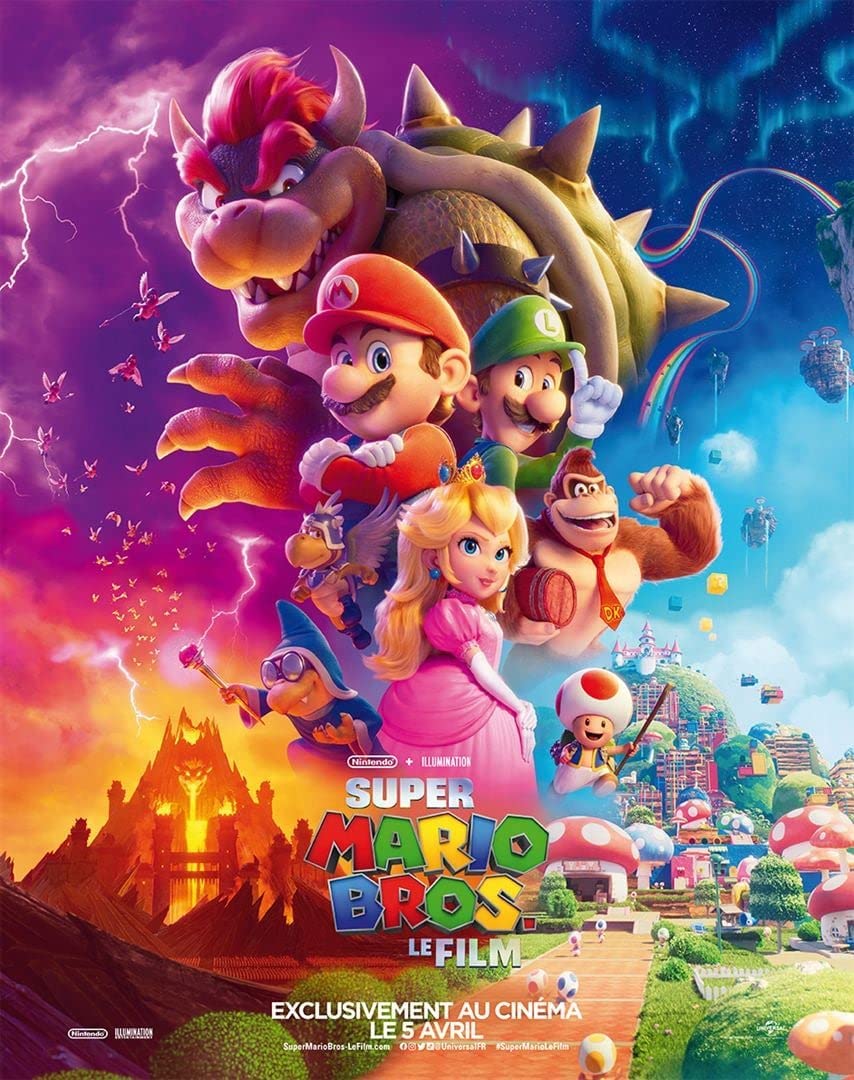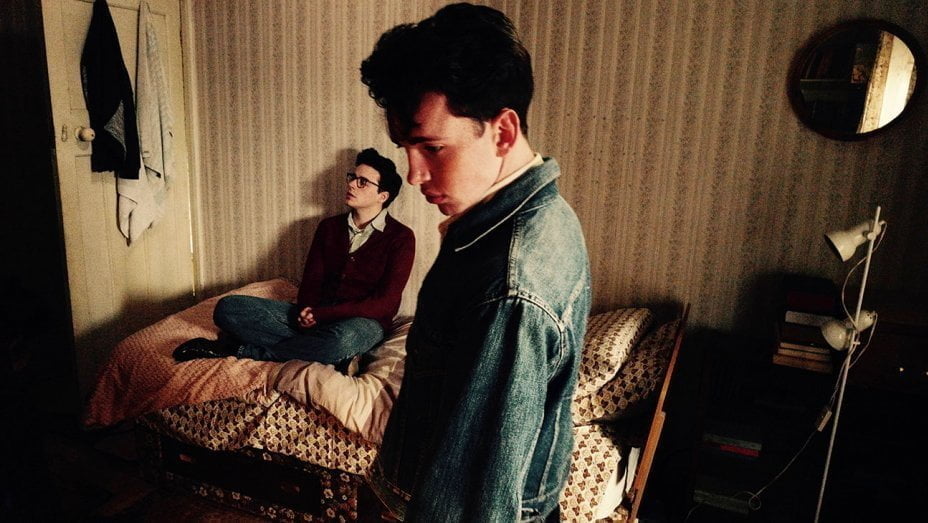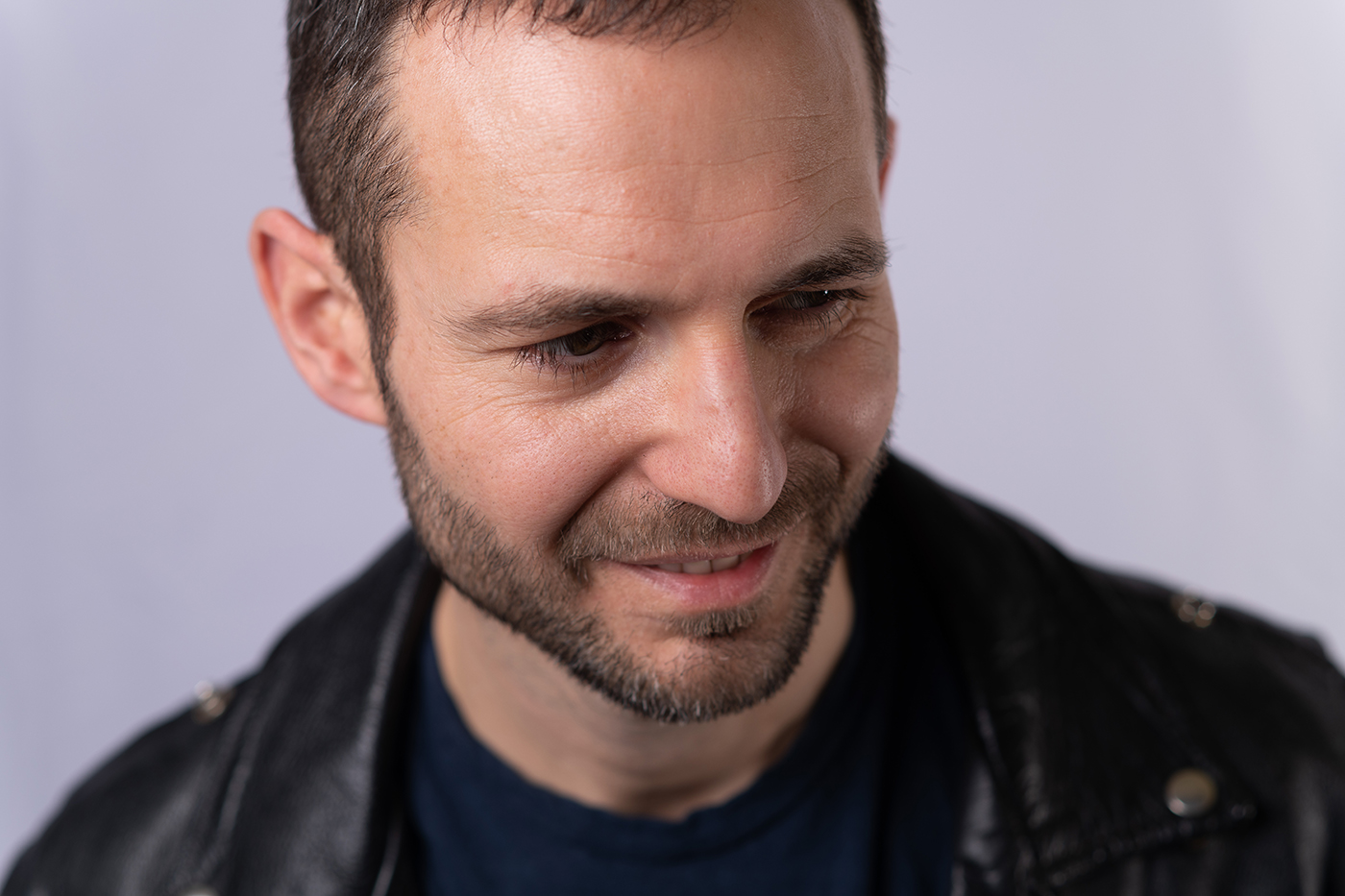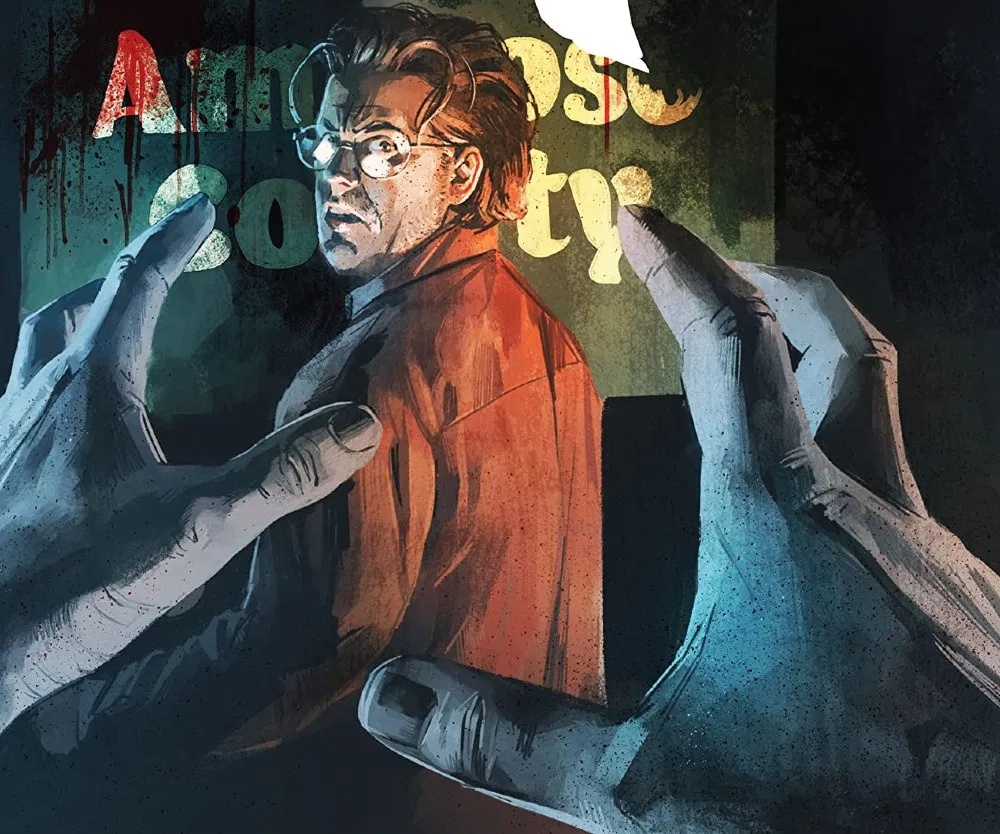Only a few hours left before the announcement of the official results that will reward a very prolific year 2017. 4509 voters, all professionals in the field, will give their final verdict tonight. Last segment of the Just Focus editor's predictions which looks back at the awards for the genesis of the films, the leading roles, the direction and the film of the year !!

ADAPTATION
- Albert Dupontel & Pierre Lemaître for Au Revoir Là-Haut
- Xavier Beauvois, Frédérique Moreau and Marie-Julie Maille for Les Gardiennes
- Grand Corps Malade & Fadette Drouard for Patients
- Eric Barbier & Marie Eynard for The Promise of Dawn
- Michel Hazanavicius for Le Redoutable
This category, very different from the next, is completely subjective because the adaptation of an existing work is to see it from a different and personal point of view. The task is very difficult to fit a long novel of several hundred pages into a concise scenario that speaks and works cinematically. It is very common to see the director and the author of the story jointly named as a relay that is transmitted. The first duo mentioned does not deviate from custom. Together they reworked Pierre Lemaître's eponymous novel in order to weave a simpler plot that works better in cinema. A new ending, subplots that disappear and a new historical context of departure. With Au Revoir Là-Haut, Dupontel and Lemaître have really adapted Lemaître's enormous novel (600 pages) into a cinema film with its own identity.
The rewriting work is less impressive but just as effective with Patients, written by its author (Fabien Marsaud aka Grand Corps Malade) and Fadette Drouard. The film is based on the eponymous autobiographical novel of the singer who tells his struggle to regain the use of his limbs after a failed dive. The image of this poignant story makes it a point of honor to talk about disability in a light tone, through brilliant interpreters of spontaneity, without rhinestones or glitter. Emphasis is placed on daily tasks and the social life of the centre is romanticized. A nice slap taken this year! In a more classic register, Romain Gary's bestseller is adapted once again after Jules Dassin's film in 1971. A faithful transcription especially carried by two fantastic actors. The Guardians' trio of writers focused their story on the lives of women at that time. Indeed, the eponymous novel by Ernest Pérochon, which dates from 1924, dealt with all the inhabitants and covered several years. Something more complex in cinema when there are children growing up. Their bet proved to be very judicious since it gives women a voice during the war and their story is more than interesting. Finally, Michel Hazanavicius was personally responsible for adapting A Year After by Anne Wiazemsky, played by Stacy Martin. A very funny and cynical approach to the memories of the love relationship that the author had with Jean-Luc Godard.

ORIGINAL SCREENPLAY
- Mathieu Amalric & Phillipe Di Folco for Barbara
- Julia Ducournau – Grave
- Robin Campillo for 120 Beats Per Minute
- Claude Le Pape & Hubert Charuel for Petit Paysan
- Eric Toledano & Olivier Nakache for Le Sens de la Fête
The French idea factory is once again very rich and varied. Le Sens de la Fête is the only "comedy" mentioned. She brought her duo of parents a second nomination after The Intouchables in 2012. Comedies are often less popular among voters. What is clear is that their film speaks to a lot of people and the crazy tape they stage is to die for. Amalric and Di Folco start from a novel by Jacques Tournier and build a story about women, cinema and human relationships. Both documentary, at the same time romantic, Barbara is a nice mix quite original (and with a sharp aesthetic). Amalric gets a second personal nomination for writing after Touring in 2011. In a more serious register, 120 Beats per Minute is a strong story and above all very (too) real. The harsh but partly experienced scenario by Robin Campillo deftly mixes very different and emotionally strong sequences. A heavy plot without length.
The two remaining films stand out from the others because they are the first feature films written and brought to the screen by their authors. A great reward already for two talents (ex-FEMIS) who bring renewal to a genre for one and a theme for the other. Petit Paysan puts down a majority of the previous works on the agricultural world because its hero is young. It's all silly but it works. It has electricity, running water and even internet! A way for the viewer to identify that is not just a crutch because this film is about things really experienced by the director / screenwriter. Extremely well documented scenes and the daily life of a cow farmer imaged in a simple and touching way. It never falls into the cliché because the reality is very different from what we are used to seeing on our screens. A great success. Our huge crush (already confessed many times) remains undoubtedly Grave. Seeing a horror movie named was already a miracle but when you see the story you understand right away. Funny and terribly evil characters. A careful treatment of adolescence also. Everything is there in this little gem. The truly original scenario in the first sense of the word, we do not see similar every day and we remain amazed by the marked pen of Julia Ducournau.

LEADING MALE ROLE
- Swann Arlaud in Little Peasant
- Daniel Auteuil in Le Brio
- Jean-Pierre Bacri in Le Sens de la Fête
- Guillaume Canet in Rock'n Roll
- Albert Dupontel in Au Revoir Là-Haut
- Louis Garrel in Le Redoutable
- Reda Kateb in Django
Many named and only one called! The saying takes on its full meaning in this list that is teeming with talents of yesterday, today and tomorrow. Daniel Auteuil is the great mogul of the panel, he who totals thirteen nominations and two Césars. As usual, he does the job and his interpretation of a cynical and provocative law teacher may recall the role of J.K Simmons in Whiplash in the form of the character. Jean-Pierre Bacri is equal to himself, with a moving sentimental touch that quickly charms the viewer. We support him from the beginning and that's a good sign for a character. He is Max, a wedding planner who must manage between a necessarily catastrophic ceremony and a personal heart story that goes wrong. A role that earned her a sixth nomination, may finally be the right one. Staying on the actors at their level let's move on to Au Revoir Là-Haut. Albert Dupontel's performance was rewarded with a fourth nomination in this category. The actor/director was not supposed to play Albert Maillard but following an impediment of Bouli Lanners, anticipated from the beginning, he had to take on the main role. He is very good but struggles to really stand out.
Guillaume Canet is brilliant with spontaneity in his own role where the midlife crisis is the starting point of an explosive comedy. We loved seeing him show self-mockery. A role however that can weigh light against Reda Kateb as Django Reinhardt, convincing and fleeing the repression of the gypsies and gypsies during the Second World War. It was the remaining first appointees that generated the most enthusiasm on our part. Swann Arlaud is shocking when he plays a thirty-year-old peasant, single, harassed by worried parents and who must save his herd from an unknown disease. The actor also lived his role 100% since he shot on the farm of the director's parents and immersed himself for several weeks in the exhausting daily life of a peasant farmer. Our vote goes to Louis Garrel for his funny and cynical interpretation of Hazanavicius' Jean-Luc Godard. Apart from his charming dyslalia, especially when he gets angry, his performance makes us laugh and live 100% his personal quest that leads him little by little into a destructive solitude. A role conducive to reward on paper and that keeps all its promises on screen!

FEMALE LEAD
- Jeanne Balibar in Barbara
- Juliette Binoche in A Beautiful Inner Sun
- Emmanuelle Devos in Number One
- Marina Foïs in L'Atelier
- Charlotte Gainsbourg in The Promise of Dawn
- Doria Tillier in Mr. and Mrs. Adelman
- Karin Viard in Jalouse
The muses of French cinema are honored again this year. At the head of the wagon, we find the sublime Juliette Binoche who wins a tenth nomination! She who had already won it in 1994 for Three Colors: Blue by Krzysztof Kieslowski can nourish a chance to win a second personal trophy. The opportunity may be to enter the very closed circle of actresses at least twice winner. In A Beautiful Inner Sun she embodies a woman who is desperately looking for love to give meaning to her life. The opportunity for Claire Denis, the director, to dwell for a moment on these forty/fifty-year-old women who have still not found true love. In the same sentimental theme, Doria Tillier has nothing to be ashamed of at her first nomination. She is spontaneous, natural and very comfortable in the role she co-wrote with her partner and director who gives her the line, Nicolas Bedos. The proximity of the character and the actress can be a brake on a reward.
Charlotte Gainsbourg, who recently received the Victoire de la Musique for female artist of the year, recorded a fifth nomination. The actress and singer, always conquering a César in this category (she is winner of hope and supporting actress), "holds the barrack" in the adaptation of Romain Gary's novel. Taking on the role of the very Jewish mother and the writer's invasive love, her accent to cut with a knife is charming. A correct performance that can be appreciated. For her fourth nomination, Marina Foïs is intriguing in L'Atelier where she plays a novelist who runs a writing workshop in southern France. His confrontation with young people a little lost, without self-confidence, is major. A film that celebrates patience, listening to young and future writers whose future is often hindered by their lack of confidence. A breath of hope. Number One and Jealous are to be compared to Un Beau Soleil Intérieur in the universality of their purpose. Karin Viard is bubbly, fair and tender in her film where she plays a divorced teacher who begins to sink into sick jealousy. A fifth nomination for this very human and sincere role that she directs with ease. A female character on the verge of a nervous breakdown with which many spectators can identify. Second Caesar after High Hearts!? Universality also for Emmanuelle Devos. Number One , however, remains a pure fiction: a woman who runs a CAC 40 company. Sad observation but the interpretation of this role (without existing comparison ….) by Emmanuelle Devos is perfect! The actress, three times nominated and winner for Sur Mes Lips, offers us a nuanced performance. Tonie Marshall's film leaves no detail to chance. We live with her every step of this magnificent task entrusted to her in her privacy. The subject is treated in its entirety with its doubts and successes. It is also a film that features a strong woman, played by a passionate actress.
Our jury was, however, transported by the performance of Jeanne Balibar. We have often talked about it in these predictions because the metamorphosis of "Balibarbara" is astounding. Roles that are often complex to tackle before, during and after filming. We remember the after-effects of Marion Cotillard at the end of her character of Edith Piaf in La Môme. Jeanne Balibar, surely unknown to the younger generations of which we editors are part, bursts the screen. It is highlighted and supported by a passionate artist and lover of cinema. Shoulders of talented technicians, the duo has served us a striking work.

REALIZATION
- Mathieu Amalric for Barbara
- Robin Campillo for 120 Beats Per Minute
- Hubert Charuel for Petit Paysan
- Julia Ducournau – Grave
- Albert Dupontel for Au Revoir Là-Haut
- Michel Hazanavicius for Le Redoutable
- Eric Toledano & Olivier Nakache for Le Sens de la Fête
Since last year, it has become impossible to combine the César for Director and that of the film of the year. One more chance for Julia Ducournau, the only representative of women. She became the eighteenth woman nominated in this category (whose only winner remains Tonie Marshall for Venus Beauty (Institute) in 2000). Because the competition is tough! Directing is a term that encompasses so many aspects that it is impossible to go over all of them for each nominee in detail. We will be interested in the direction of actors, the composition of the frames, and the staging. Boldness, risk-taking and originality are also very decisive parameters.
Albert Dupontel honors a second nomination in this category (three if we count that of the First Film in 1997 for the brilliantly offbeat Bernie). We know his mastery of directing and he clearly demonstrated it in the adaptation of Pierre Lemaitre's novel. Quite daring shots, a neat and sparkling artistic direction. Robin Campillo, the multi-tasking and passionate man who had moved the Croisette (and had left with a Grand Prix more than deserved), will also have his card to play. Second nomination for directing after Eastern Boys in 2015, we will remember above all the scenes of AG of his film, lessons of staging. He directs novice actors with a masterful hand and his approach to a serious and contemporary subject is a pure delight. Michel Hazanavicius, president of the Jury in Deauville last September, can hope to win a second prize after The Artist in 2012. We will regret a staging that pays tribute (too much) to Jean-Luc Godard and the lack of relative inventiveness. The adaptation is however hilarious carried by a duo as touching as violent.
The duo Toledano/Nakache receives a second nomination for their dramatic comedy, whose universality and mix of humor and drama are their trademark. On the staging side, no real originality. The cast and the story are more than enough for the success of their film. Mathieu Amalric can also nourish great hopes with Barbara, a declaration of love to cinema, song, the arts and women. A second nomination also for a major work of our cinema by a marked artistic approach that dares a lot. Last but not least, Hubert Charuel seized us with his touching and sincere portrait on agriculture. Far from the cinematographic clichés too present, his first film is carried by a fair Swann Arlaud who does not make waves. A first feature film mastered from A to Z that some experienced filmmakers should look at as an example. A touch of freshness and four nominations that will delight his mother but which may nevertheless weigh light against the devilishly controlled and daring UFO of Julia Ducournau !! With 120 beats per minute, the two films that have marked us the most this year.
On the casting side, a Garance Marillier at the height of the greatest actresses for a very complex and trying role. His on-screen partners provide discreet and fair support in this evil veterinary school. The frames are hyper worked with a light as a character in its own right. The visual and sound atmosphere fits perfectly into the growing tension. The choice of music is relevant and the plot is disconcertingly fluid. Above all, Grave gave us a lot of hope. The hope that daring to pay, that thinking outside the box can prove to be a winner, and that there is still an audience for genre films in France. It's not every day that we see films like Grave: the genre treated with art and not like a B series. Bravo Julia and especially thank you for bringing a new wind on our too homogeneous French cinema. 
FILM
- 120 Beats per Minute by Robin Campillo (production: Hugues Charbonneau, Marie-Ange Luciani)
- Au Revoir Là-Haut by Albert Dupontel (production: Catherine Bozorgan)
- Barbara by Mathieu Amalric (producer: Patrick Godeau)
- Le Brio by Yvan Attal (production: Benjamin Elalouf, Dimitri Rassam)
- Patients of Grand Corps Malade and Mehdi Idir (production: Eric Altmayer, Nicolas Altmayer, Jean-Rachid)
- Petit Paysan by Hubert Charuel (production: Stéphanie Bermann, Alexis Dulguerian)
- Le Sens de la Fête by Eric Toledano & Olivier Nakache (production: Nicolas Duval Adassovsky, Laurent Zeitoun, Yann Zenou)
The supreme category rewards the producer(s) and also the director. We may be surprised by the presence of the Brio (to the detriment of Grave for example which is a real cinematographic proposal). Yvan Attal's rant, combined with his much better results at the box office, must have had an effect (nearly 1.2 million admissions for Le Brio against 150,000 for Grave in France). He is nevertheless among the seven contenders and has every chance. Le Sens de la Fête is the only comedy of the long panel. Second nomination for the duo of directors after The Intouchables. A good film but surely not up to its competitors in terms of staging. Petit Paysan has a huge platform and Hubert Charuel has nothing to be ashamed of for the four personal nominations for his first film. His first attempt is very good, promising but we can regret that he did not insist on staging by trying things. The opinion remains personal because it may not have been his goal and whatever happens his film is an authentic portrait!
Same striking and pleasant authenticity in Patients who dare more in its staging (we love this compensated travelling during the first wheelchair ride !!!). The story of Fabien Marsaud and his friends at the Coubert rehabilitation centre is a very beautiful moment of cinema. Above all, we must salute the work of Mehdi Idir, co-director of the film. The humorous and ultra-authentic treatment of disability is a real humanist cry and a hand extended to the other. Special mention to its fresh and endearing cast, and especially Samir El Bilabi and Soufiane Guerrab (and of course Pablo Pauly). A real spotlight on individuals who are often underestimated in our society. Continuing in artistic grace, Barbara is a very intriguing work, which is a very good sign. One can only admire the meticulousness of the details of each frame, the play of light, the fluid narration, an interpretation at the top… As has often been said, Mathieu Amalric's seventh feature film is an aesthetic jewel that can be admired from several angles. The bet is successful because it also speaks to those who do not know Barbara. Mathieu Amalric films his love of cinema, actresses, women and music. It received its second nomination in the category.
This brings us to the dilemma that tore the votes of Just Focus. On the one hand the "blockbuster", to date, of Dupontel facing a huge visual and sound slap. For his first period film, he adapts with ingenuity and visual richness the Prix Goncourt written by Pierre Lemaitre. A cast of confirmed actors and actresses who evolve in a beautifully decorated and illuminated universe. A real cardboard that also has a refined staging and an ultra-well presented purpose. Dupontel's work on Lemaitre's novel blew us all away. A very visual set, pleasant to look at and listen to. One of these big French productions (about twenty million euros) that restores a little our failed blockbusters of recent years. Robin Campillo stunned nearly a million spectators in theaters. Once again authenticity on a subject that touches the field of health. Performers almost all unknown, but who transcend the screen. Nahuel Pérez Biscayart is undoubtedly a pleasant surprise that represents a combative youth full of H24 life. The virtuoso staging truly combines body, light and sound. Even the silences are beautiful in this film. It is a whole that grabs the guts and that greatly disconcerts. 120 Beats per Minute missed the Palme d'Or that belonged to him, we hope very much that Robin Campillo's masterpiece will win its Caesar.

Grave and Goodbye Up there are our big favorites since they would collect five and six Caesars respectively. The twenty or so voting film editors of Just Focus sometimes had trouble deciding as the selection is excellent this year. Above all, we notice that many technicians have been working together for several years. A lasting and healthy confidence in this industry that symbolizes the synergy of everyone's experience and talent. Big black spot however: the absence of Valerian. The film, considered a financial abyss despite its 4 million admissions, has suffered harsh criticism. These "cinephiles" missed Luc Besson's audacity to do in France for the first time what the Americans produce en masse. There are indeed French comics and he is one of the few who wants to make them live for fear that Superman and his friends erase forever a page of our literary history.

Based on the principle that it remains absurd to put art in competition, which is why the qualifier "best" has been deliberately removed from the article. Tastes and colors will always be subjective. The great mass of French cinema will reward the talented technicians of our cinema, still as popular despite a relative American hegemony on our screens. This evening is undoubtedly a huge professional springboard for the winner. But also significant economic benefits for producers who will see their film released in theaters if it wins.
A big novelty this year, a César du Public will be awarded to the French film that has gathered the most spectators. This prize will perhaps pay tribute to comedies that are very popular here but that struggle to compete with the rest because of their lightness frowned upon by voters: Asterix and Obelix Mission Cleopatra, Welcome to the Chtis….If we stick to the current figures, Raid Dingue by Danny Boon (who has been campaigning for this award since 2009) should be awarded… Nevertheless, we appreciate the open-mindedness of the Academy. Secret desire that the second (the undervalued Valerian by Luc Besson) also has his chance (500,000 entries separate them). Answer on March 2nd live and clear for the last time surely!








































